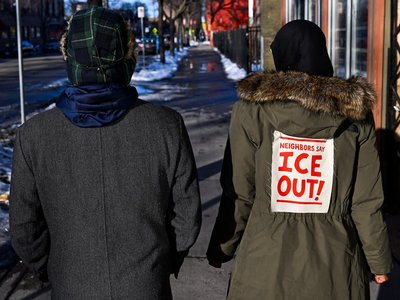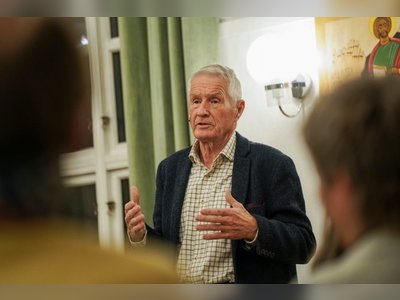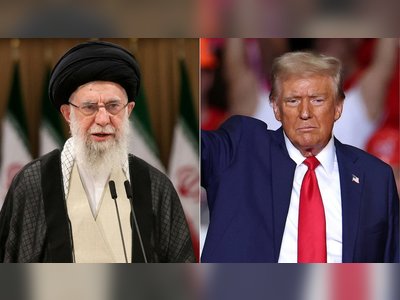Gaza's Ceasefire Eludes as Air Strikes Intensify Killing 21 Amid Humanitarian Desperation
Renewed violence in southern Gaza claims more lives, overshadowing fragile ceasefire talks amid mounting global concern over the humanitarian crisis.
In a region perpetually gripped by conflict, the latest escalation in Gaza underscores the tragic complexities of achieving peace as Israeli air strikes claimed at least 21 lives, including children, in the southern city of Khan Younis.
This development complicates the backdrop of ongoing, yet tenuous, ceasefire negotiations in Doha, Qatar.
The strikes, targeting a car, a house, and civilians on the streets, have contributed to a grim tally reported by Gaza’s health ministry: 59 killed and over 270 injured within the past 24 hours, with no immediate comment from Israel’s military.
This surge in violence coincides with indirect negotiations mediated by the United States, Qatar, and Egypt, aiming to bring an end to a 15-month war characterized by unprecedented casualties.
The conflict’s origins trace back to October 2023, when Hamas and allied militants launched an attack killing 1,200 individuals and taking hostages, sparking Israel's retaliatory campaign that has since resulted in over 45,000 Palestinian deaths, according to Gaza's Health Ministry.
The ongoing hostilities have displaced nearly 90% of Gaza's 2.3 million inhabitants, raising international alarm particularly as winter sets in.
Despite the violence, negotiations persist, with Hamas affirming its commitment to a ceasefire.
However, Israeli Prime Minister Benjamin Netanyahu’s stance remains firm on dismantling Hamas infrastructures, reflected in Israel's continued military operations within Gaza’s dense populations.
These operations have led to devastating humanitarian outcomes, underscoring the suffocating environment in which civilians struggle for survival.
The international community remains vigilant, with the United Nations reiterating the principles of international humanitarian law, including the protection of civilian lives and infrastructure.
Despite ongoing dialogues stressing the necessity for peace, misinformation and unyielding military objectives blur the path towards meaningful resolutions.
In parallel, tensions simmer in the West Bank, where Israeli military actions have claimed lives, further inflaming Palestinian grievances.
Meanwhile, a fragile ceasefire with Hezbollah in Lebanon holds precariously, though its continuation is far from guaranteed.
As the new year unfolds, the specter of war lingers with urgency.
Diplomats and global powers face a formidable challenge in fostering a ceasefire not only to halt immediate bloodshed but also to address underlying grievances that have perpetually fuelled this enduring conflict.
This development complicates the backdrop of ongoing, yet tenuous, ceasefire negotiations in Doha, Qatar.
The strikes, targeting a car, a house, and civilians on the streets, have contributed to a grim tally reported by Gaza’s health ministry: 59 killed and over 270 injured within the past 24 hours, with no immediate comment from Israel’s military.
This surge in violence coincides with indirect negotiations mediated by the United States, Qatar, and Egypt, aiming to bring an end to a 15-month war characterized by unprecedented casualties.
The conflict’s origins trace back to October 2023, when Hamas and allied militants launched an attack killing 1,200 individuals and taking hostages, sparking Israel's retaliatory campaign that has since resulted in over 45,000 Palestinian deaths, according to Gaza's Health Ministry.
The ongoing hostilities have displaced nearly 90% of Gaza's 2.3 million inhabitants, raising international alarm particularly as winter sets in.
Despite the violence, negotiations persist, with Hamas affirming its commitment to a ceasefire.
However, Israeli Prime Minister Benjamin Netanyahu’s stance remains firm on dismantling Hamas infrastructures, reflected in Israel's continued military operations within Gaza’s dense populations.
These operations have led to devastating humanitarian outcomes, underscoring the suffocating environment in which civilians struggle for survival.
The international community remains vigilant, with the United Nations reiterating the principles of international humanitarian law, including the protection of civilian lives and infrastructure.
Despite ongoing dialogues stressing the necessity for peace, misinformation and unyielding military objectives blur the path towards meaningful resolutions.
In parallel, tensions simmer in the West Bank, where Israeli military actions have claimed lives, further inflaming Palestinian grievances.
Meanwhile, a fragile ceasefire with Hezbollah in Lebanon holds precariously, though its continuation is far from guaranteed.
As the new year unfolds, the specter of war lingers with urgency.
Diplomats and global powers face a formidable challenge in fostering a ceasefire not only to halt immediate bloodshed but also to address underlying grievances that have perpetually fuelled this enduring conflict.












